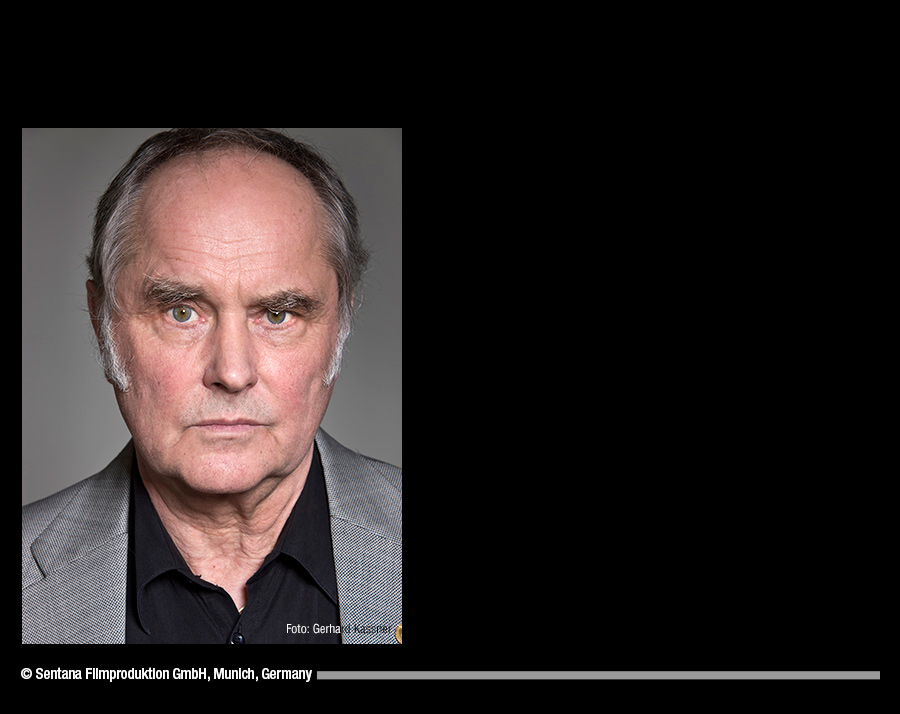


Writer / Director / Producer
Statement
After reading an article in the German Newspaper "Sueddeutsche Zeitung" about a man in Ohio, who survived his own execution, and that there would be a hearing on the legal question as to whether or not the state of Ohio could execute this man a second time, I thought "this cannot be true".
To execute someone once seems to me a violation of human rights, but twice I think is absurd. After reading the article, I flew immediately to Ohio, together with my co-writer Luise Lindermair. Upon our arrival, I was surprised to find in front of the court building in ColumbusOhio, where the hearing took place, that there was nobody there except for Luise, myself and our film team. No protesters, no media, nothing. I had not expected this total indifference of the people towards questions surrounding the death penalty. I had thought this to be a crucial and hot topic in a democracy like the United States.
The December 2009 hearing did not resolve the question of the second execution. Unfortunately we were refused permission to film the hearing, however Romelle Broom's Defense counsel granted us an interview. Her caution and mistrust in relation to our film was evident. What is this man from Germany up to? She was initially hesitant to reveal to us the background of Romell Broom's trial in 1985, the truth about the two eyewitnesses and other crucial information. Only much later did I fully understand the ramifications of what had happened during Romell Broom's death penalty trial and came to the conclusion that his sentence was unfair.
I am hoping that a second execution of Romell Broom will eventually be ruled cruel and unusual punishment, in violation of the U.S. constitution, and his sentence commuted to life in prison.
Biography
Michael Verhoeven was born in Berlin in 1938 as the son of famous actor and director Paul Verhoeven (not the Dutch Hollywood-director) and well-known actress Doris Kiesow. In his younger years Michael Verhoeven performed on stage in Munich and Berlin (for instance "tea and sympathy") and acted in several films in the 1950s and 60s. Verhoeven decided to study medicine. He financed his medical studies by acting in films and on TV, e.g. "Wake up and sing" (Clifford Odets) and "The male animal" (James Thurber). In the movie "Jack and Jenny" (directed by Victor Vicas) his partner was the well known actress Senta Berger. They married in 1966 and founded their own film production company called Sentana-Filmproduction.
As a medical doctor he worked in hospitals in Munich, Worcester Massachusetts and Los Angeles. 1973 he quit his medical career, because his work as a screenwriter, director and producer did not leave him enough time for the commitment to both professions.
Michael Verhoeven has received domestic and international awards for his short film "Tables" (1969) and feature-film "O.K. (1970) both dealing with the Vietnam war. Other award winning feature films include "Sunday Children" ("Sonntagskinder"), presented in 1980 at the "Director's Fortnight" in Cannes, and "The White Rose" ("Die weiße Rose") in 1982. His film "The Nasty Girl" ("Das Schreckliche Maedchen") was nominated for the Academy Award and for the Golden Globe, won the Silver Bear for Best Director in Berlin in 1990 and the BAFTA Academy Award 1992 for best foreign language film.
In 1996 his film "My Mother's Courage" ("Mutters Courage") based on the play by theatre legend George Tabori, received the German Film Award and the Bavarian Film Award for Best Picture and in 1997 the Award for Best Picture at the Jerusalem Festival in the "Jewish Experience" category. His TV-movie "Revelations of a Marriage" won two Fipa awards at the Biarritz-Festival in 2001.
His documentary about the Crimes of the Wehrmacht "The Unknown Soldier" (2006) is shown around the world, also in the U.S., as well as his documentary "Human Failure" (2008) about the so-called "Aryanization" during the 3rd Reich, the organized robbery of all goods and property of the Jewish population in Germany by finance-authorities or simply by the neighbors next door.



